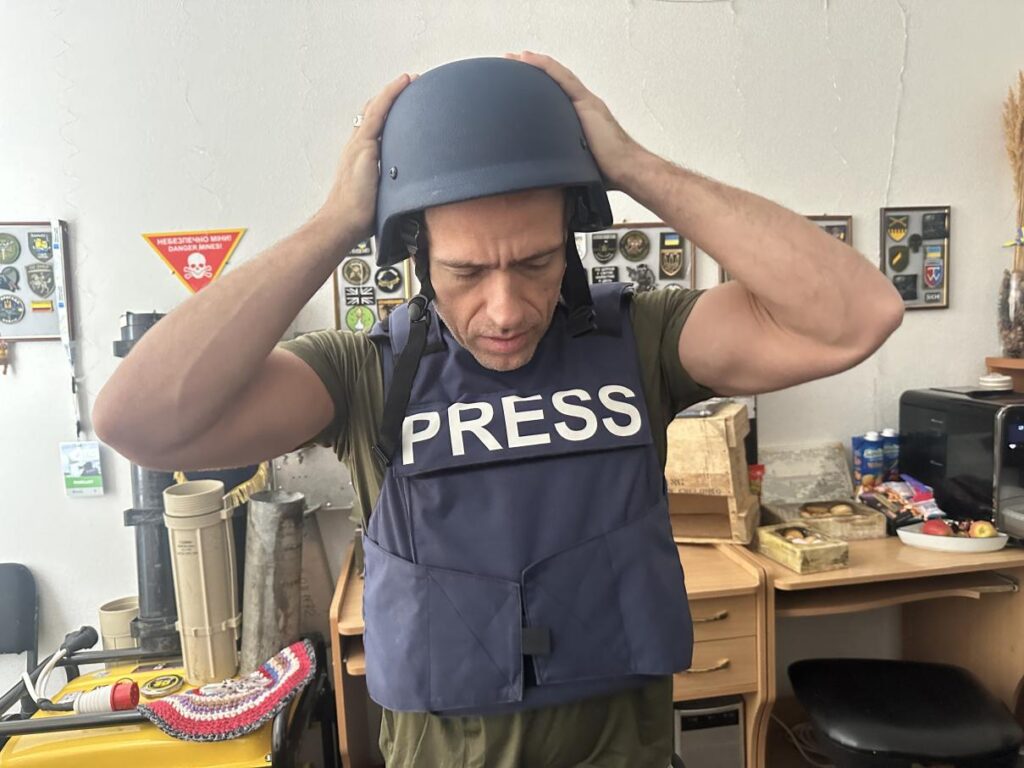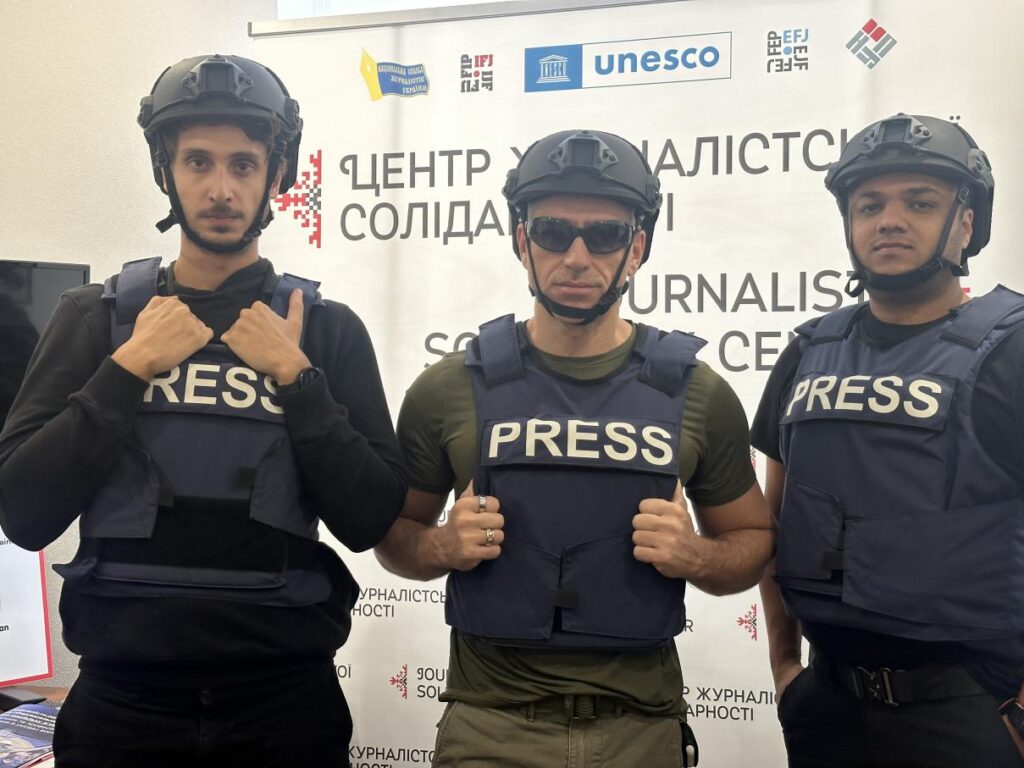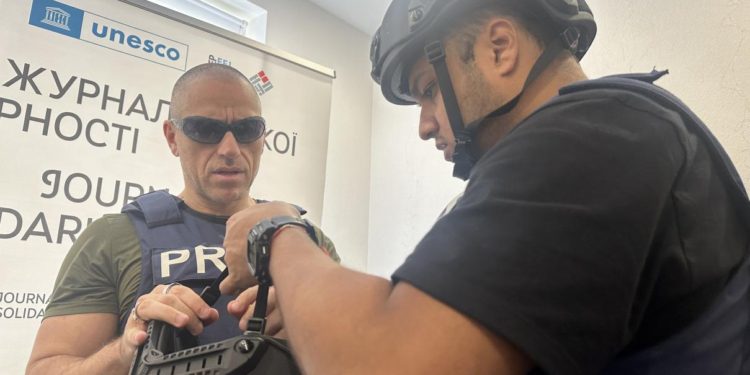“It’s very intense, full of emotions. It’s very different from anything we’ve ever imagined, reading or thinking,” a Brazilian media worker created a diary of his trip to Ukraine and several days of work here. In this format, the Brazilian audience sees Ukrainian realities thanks to Professor HOC.
This [HOC] is the pen name of media worker Heni Ozi Cukier, who spent a business trip in Kyiv and the Kharkiv Region. He is a political scientist, professor, writer, and blogger with almost two million YouTube subscribers:
“The russian invasion of Ukraine is one of the biggest events of the 21st century. To fully understand something of this scale, I had to come all the way here. For the next few days, I’ll be here, near the front. I’ll start to understand, talk to people, see everything that’s happening here, and, obviously, this is a difficult journey, very difficult. I don’t think I’ve ever spent four days getting to my final destination.”
The creative and security team of Professor HOC got acquainted with the work of the Journalists’ Solidarity Center (JSC) in Kharkiv.
For work “in the field”, the Kharkiv JSC of the National Union of Journalists of Ukraine (NUJU) provided foreign media professionals with protective equipment.

Heni Ozi Cukier analyzes and tells his audience about the geopolitical situation. There are already the first videos on his website with impressions of working in Ukraine.
“I publish diaries. Reports in which I discuss the entire experience. I think the train was one of the most exhausting and difficult things, but I managed to talk to several people. I see and feel the history of the war, what they think, what they feel on the train. For example, we only had women, the elderly, and children. This is the reality of war, isn’t it? Men cannot leave Ukraine. And they are also in combat, inside the hostilities. I have spoken to many women, and their stories are often very emotional and shocking. Some of the things are very striking. People are emotionally upset, crying, and telling stories. There is a strong sense of unity and a feeling of: “I will not give up, I will fight, this is my country.” And this is part of the transformation that has perhaps taken place with Ukrainian identity. Previously, perhaps Ukrainians had not been as united and had not developed a strong sense of identity and nationality. One of the things that russia wants to do, that Putin is planning, is to destroy this identity. But the invasion and the war; they have the opposite effect, I would say, in many ways.”
In the first emotional comments about the work in Ukraine, Heni Ozi Cukier described the new life of Ukrainians: life under the constant air raid alert sirens.
“There are also interesting and amazing things, such as this. We imagine war and think of complete destruction. The capital is intact; people live normally on the streets and go out or walk. Things are not destroyed, and people try to live as normally as possible. Obviously, when you talk to people, you understand that other problems and other issues are complex and confusing, right? For example, the story about the alert sirens and when there is an alarm about an attack, and people wake up in the middle of the night. Because this happens mostly at night, and they can’t fall back asleep, they often wake up trying to fall asleep again, and suddenly it’s time to wake up for work. As a result, everyone sleeps very little. Everyone has traumas, stresses.”
Every emotion that Professor HOC has experienced is available for viewers to see in his content. Stories that are, unfortunately, already a familiar reality for us and logically surprise the world.
“One of the women I spoke to works in technology, and she said that she and a lot of people besides her have bought 3D printers and are printing drones at home. It’s not a government program, it’s just a way they found to help, so they bought a 3D printer and downloaded the programs.”

The network of Journalists’ Solidarity Centers is an initiative of the National Union of Journalists of Ukraine, implemented in collaboration with the International and European Federations of Journalists and UNESCO, and with the support of the People of Japan. Our primary goal is to assist media professionals working in Ukraine during the war. The Centers are active in Kyiv, Kharkiv, Zaporizhzhia, Dnipro, Lviv, and Ivano-Frankivsk. The project is part of UNESCO’s broader efforts to support the Safety of Journalists and Freedom of Expression in Ukraine.
Contact the Kharkiv JSC at 093 813 7544 (JSC’s coordinator Hanna Chernenko).
Kharkiv JSC

 THE NATIONAL UNION OF
JOURNALISTS OF UKRAINE
THE NATIONAL UNION OF
JOURNALISTS OF UKRAINE
















Discussion about this post